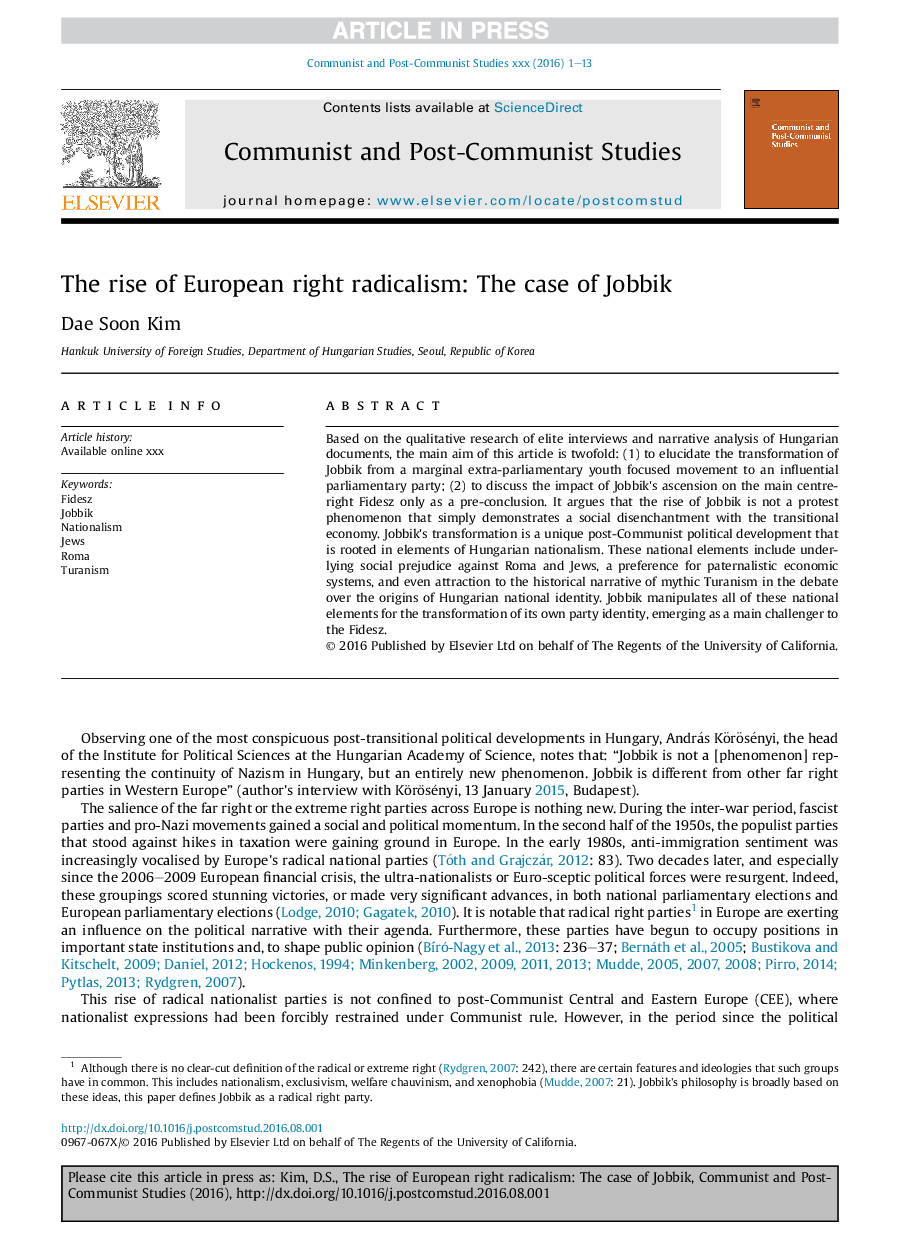| Article ID | Journal | Published Year | Pages | File Type |
|---|---|---|---|---|
| 5114258 | Communist and Post-Communist Studies | 2016 | 13 Pages |
Abstract
Based on the qualitative research of elite interviews and narrative analysis of Hungarian documents, the main aim of this article is twofold: (1) to elucidate the transformation of Jobbik from a marginal extra-parliamentary youth focused movement to an influential parliamentary party; (2) to discuss the impact of Jobbik's ascension on the main centre-right Fidesz only as a pre-conclusion. It argues that the rise of Jobbik is not a protest phenomenon that simply demonstrates a social disenchantment with the transitional economy. Jobbik's transformation is a unique post-Communist political development that is rooted in elements of Hungarian nationalism. These national elements include underlying social prejudice against Roma and Jews, a preference for paternalistic economic systems, and even attraction to the historical narrative of mythic Turanism in the debate over the origins of Hungarian national identity. Jobbik manipulates all of these national elements for the transformation of its own party identity, emerging as a main challenger to the Fidesz.
Keywords
Related Topics
Social Sciences and Humanities
Social Sciences
Development
Authors
Dae Soon Kim,
